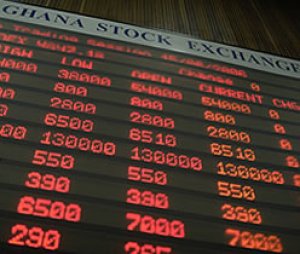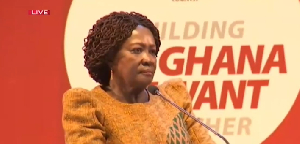Business News of Tuesday, 3 September 2013
Source: B&FT
GSE to review delisting rules
The Ghana Stock Exchange (GSE) says it is reviewing current voluntary delisting rules which allow majority shareholders of a company to push for delisting from the local bourse without recourse to their minority shareholders.
Speaking at the GSE’s annual general meeting last week, Vice Chairman of the bourse’s Governing Council, Franklin Asafo-Adjei, said the GSE is revising the rules to limit the powers given to majority stakeholders over delisting decisions.
Delisting refers to the practice of removing the stock of a company from a stock exchange so that investors can no longer trade the company’s shares publicly.
“We want to review our rules as far as voluntary delisting is concerned. One of the key things we are considering is to give minority stakeholders a say in any resolution seeking to delist a company,” Mr. Asafo-Adjei said.
“A board resolution is adequate when a company is coming to list. But when a company decides to delist, we insist that it is done through stakeholders’ resolution,” he added.
He said the GSE wants to curb situations such as when CFAO – a multinational company with a subsidiary, CFAO Ghana, listed on the bourse – was able to pull out from the local exchange on account of the parent company’s 51-percent stake in the subsidiary.
Since the establishment of the Ghana Stock Exchange (GSE) in 1990, a number of companies such as the CFAO, Accra Brewery Limited (ABL) and British American Tobacco (BAT) have delisted from the bourse.
GSE Managing Director Kofi Yamoah, touching on the market performance in 2012, said the GSE-Composite Index, notwithstanding the country’s macro-economic frailties, ended the year with a gain of 23.8 percent compared to a fall of 3.1 percent the previous year.
The positive movement in the index, Mr. Yamoah stated, was due to the strong results of many of the listed companies. However, the volume and value of shares traded dropped by 51 percent and 23 percent respectively compared to the previous year.
In 2012, the volume of shares traded was 218 million, valued at GH¢102 million, compared to 402 million shares valued at GH¢447 million in 2011. The total market capitalisation for 2012 went up 21 percent to close at GH¢57.26 billion.
Although the market saw only one listing last year, Mr. Yamoah said the bourse will still pursue new listings in the equity and corporate bond category this year.
Gains on the market in 2013 reached 65.8 percent on August 30, with the financial stocks index returning 69.2 percent in the period. Analysts say this performance has been driven by rapid economic growth and impressive company results, especially within the financial services industry.
“We will follow through discussions toward actualising the listing of other new products such as index-based derivatives. We also believe that the commencement of business by fund managers under the Tier-2 pension scheme will contribute in no small way toward a marked improvement in liquidity on the market,” Mr. Yamoah said.
Entertainment










